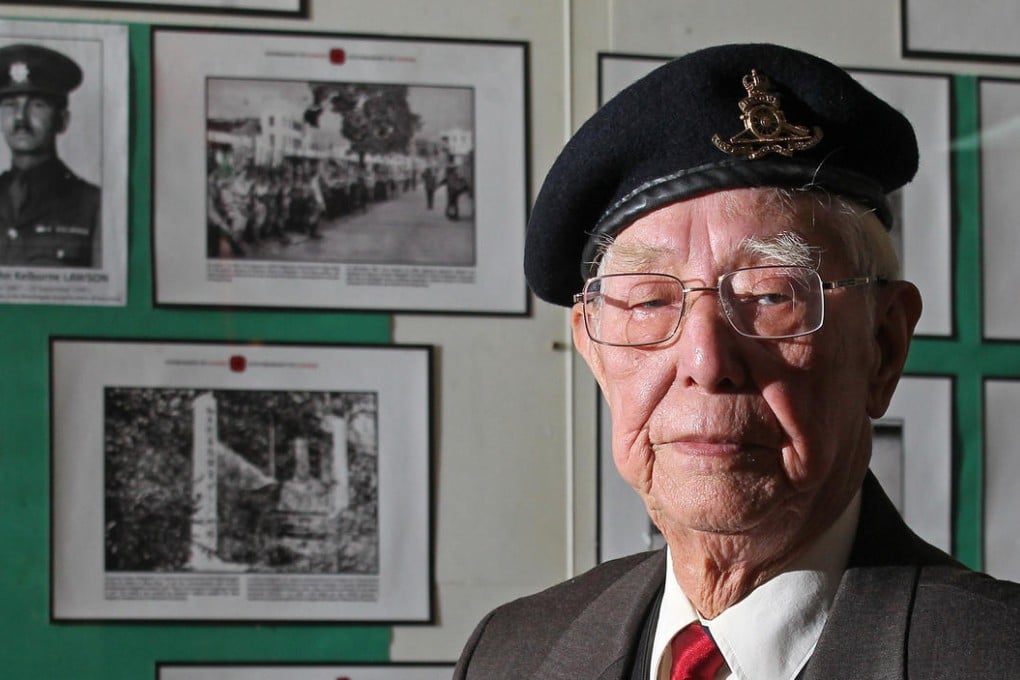Peter Choi, 93, on wartime spying, raising seven kids alone, and Typhoon Wendy
Hong Kong World War II Veterans' Association chairman, who went to work at 13 and opened a restaurant when he retired, looks back at a life lived to the full

I was born in 1922, in Hong Kong, the third of 11 children, and I grew up on Hau Wo Street, in Kennedy Town. My father worked in a factory making ropes for ships. At the age of 13, I went to work as a pitch boy at the Repulse Bay Hotel. I would do small errands, like deliver newspapers and letters to guests such as Soong Tzu-wen (brother of the Soong sisters) and Lawrence Kadoorie. My monthly salary was HK$450, and the hotel not only had a dormitory for us to live in, but also offered English classes so we would be able to communicate better with guests.
At 17, I started working with my father in the rope-making factory. It wasn't tough work, just tedious. I decided to join the British Army in August 1941, three months before the Japanese invasion of Hong Kong. On December 8, 1941, the Japanese bombed the airport. I was at the Lei Yue Mun barracks eating breakfast at the time. Three minutes later we got the call to be at our post at Tai Po Kau, near Chinese University. I had to be on the lookout for Japanese ships and we had to defend ourselves in case the Japanese landed there - they never did. I wasn't scared - we were psychologically prepared to face the situation. Later I went to Wah Fu and, as an anti-aircraft gunner, I had to shoot Japanese planes down. We had two shifts, Chinese soldiers were the first group, Indians the second.

Around this time I met Mr Lau, an intelligence officer with the British Army Aid Group. He asked me to work at the naval dockyard in Admiralty as a repairman, pounding metal plates. But the real mission was to monitor Japanese vessels - whenever they went back to sea, I had to inform Mr Lau. He was later captured by the Japanese and, because people knew I had worked for him, I fled to the mainland. I went through a mountain pass in Shenzhen. Eventually, the Japanese surrendered and I returned to Hong Kong.
The British asked me to sign a five-year contract to become a full-time soldier, but I didn't because the salary was too low. There was a pay discrepancy depending on if you were Chinese or British so I left the army in 1945. My first job out of the army was to look after rental cars at the Hong Kong Hotel. Then I became a driver for the chief executive of Coca-Cola, Mr Henderson. I was paid HK$360 a month and another HK$360 for expenses. Henderson was transferred and a new boss came in. He didn't like me and accused me of stealing petrol. Three months later, Henderson came back, felt bad for what had happened and gave me a generous monthly subsidy. I used the money to buy a Leica camera and became a freelance photographer.
In 1951, I was living in Shau Kei Wan and I decided to marry a woman I had met through the St John Ambulance Brigade. Her job as a nurse was to board ships to give sailors injections for small pox. In 1963, she passed away. We had seven children, the oldest was 11 years old, the youngest was a newborn. I raised them. Then, in 1968, Typhoon Wendy hit. At the time I was handling a construction project to move stones from a mine to Quarry Bay. I also had to take care of the bamboo scaffolding. During the typhoon, all the bamboo scaffolding was destroyed and I went bankrupt from the cost of replacing it.